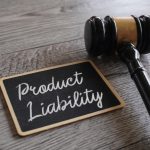Regulations, legislation and directives surrounding trade are crucial in protecting businesses that enter into contracts and agreements with others, and also provide resolutions when issues are encountered. Here Michelle Schulz, co-founder and co-chair of Gardere’s International Trade Practice gives her take on this matter, and highlights her thought leadership in the global trade sector.
Michelle Schulz is co-founder and co-chair of Gardere’s International Trade Practice. She also co-chairs the firm’s broader International Practice Group, which provides end-to-end solutions in international business transactions and litigation.
As a leading authority in the international trade and compliance arena, Michelle represents a range of export and import clients in matters relating to compliance with US and international regulations such as the International Traffic in Arms Regulations, the US Export Administration Regulations, and the various embargo and sanctions programs administered by the Treasury Department’s Office of Foreign Assets Control.
Since you began practicing, how have you seen the international trade scene evolve, in particular regards to arms trade, import/export, and embargo and sanctions?
International trade rules and regulations can change on a daily basis, and some of those changes can be quite dramatic. Just in the last few years there have been new sanctions on Russia and reduced sanctions on Cuba and Iran. While the reduced sanctions have not fully opened Cuba and Iran for business with the US, many companies are already preparing to enter these markets. For foreign subsidiaries of US companies, there are already opportunities to conduct business in Iran. On the other side of the spectrum, the sanctions on Russia limit financing transactions and certain oil and gas transactions.
What would you say were the key legislative developments to help international trade in the last few decades? How have they affected your work in your specialised fields?
In addition to ECR, free trade agreements are some of the most important developments. The world is an increasingly global market, and the US’s place in that market depends on maintaining good relations with its current trade partners while expanding into new markets. We’ve seen a number of foreign countries enter into multiple free trade agreements, thereby providing an incentive to shift trade to parties to those free trade agreements. These agreements generally provide for reduced or eliminated tariffs between the partners and controls on government support for state-owned entities. The US is currently debating whether to approve the Trans-Pacific Partnership, which includes 12 countries. If approved, it could significantly impact trade throughout the Asia-Pacific region.
As a thought leader, how are you working to change the international trade landscape for the better?
Over the past several years, I have had the privilege of serving on the President’s Export Council Subcommittee on Export Administration (PECSEA) in Washington, D.C. The PECSEA is a senior-level advisory committee to the US Department of Commerce, and ultimately the President, on ECR. We have worked alongside the Commerce Department to reduce the regulatory burden on US exporters through regulatory reform and outreach. As part of the PECSEA’s outreach subcommittee, I have worked with the Commerce Department and industry leaders to expand outreach to exporters of all sizes. In addition, I chair the PECSEA Data Transmission and Security Subcommittee, which aims to update, streamline, and improve dated export regulations on technology. For example, we have assisted Commerce in the development of the new cloud carve-out in the new definitions rule, providing exporters with a safe harbour when transferring or storing certain data in the cloud. We have also worked with the Commerce Department to help simplify overly complicated encryption export regulations. The simplification and updating of US export regulations has dramatically reduced licensing and other requirements for exporters.
Do you have a thought leader motto or mantra you live by in your international trade work?
A thought leader whom I greatly respect told me once, “You work for your team.” Now I try to follow this mantra to in all aspects of international trade. The most effective leaders in our field listen to key stakeholders and take their opinions seriously. This approach has served me well whether I am advising clients in a crisis situation, building a compliance program, training personnel, or handling day-to-day challenges. Our trade team offers unique insights from different perspectives (e.g., enforcement, Customs brokerage, technology). If you are drafting an export compliance manual in-house, did you talk to Human Resources about how they screen new employees, what works for them, and what doesn’t? Did you solicit comments from sales personnel? I believe working for your team improves your own performance and effectiveness.
Is there anything else you would like to add?
Expanding from a domestic to international company can be challenging, but if done properly it can bring new markets and opportunities. Consider that the US has a population of approximately three hundred million while China has over one billion. Add in the rest of the world and you have a giant potential market. Companies considering international trade should invest in developing their policies and procedures up-front so they have smooth sailing as they grow.








